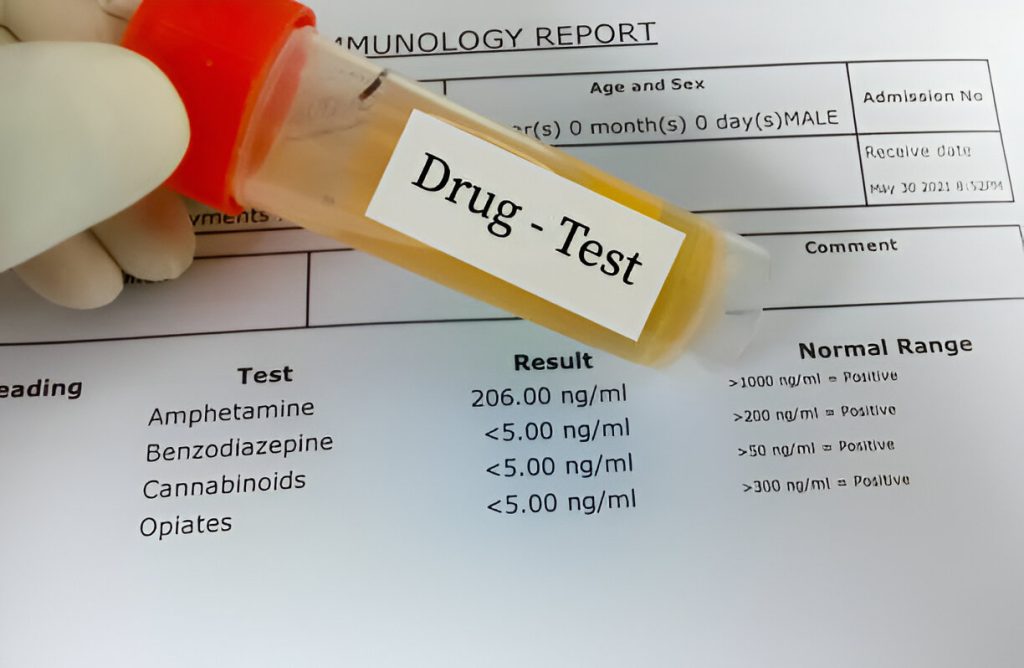Drug tests can be stressful. Many people worry about the results and how they will get them. In this article, we will explain how you can know if you passed your drug test. We will cover the process, the different types of drug tests, and what to expect after the test. By understanding each step, you can feel more at ease during the entire process.
Understanding Drug Test
Drug tests check for the presence of drugs in your system. They can detect substances like marijuana, cocaine, opiates, and more. Employers, schools, and other organizations often require these tests for various reasons, such as safety, productivity, or legal compliance. Understanding the basics of these tests can help reduce anxiety.
There are several types of drug tests. The most common ones are
- Urine Test
- Saliva Test
- Blood Test
- Hair Follicle Test
Each type of test has its own method and detection window. Knowing these differences can help you understand how they work and what to expect.
Urine Test
The urine test is the most common. It is non-invasive and easy to administer. You will be asked to provide a urine sample. This sample is then tested for drugs. The urine test is popular because it is cost-effective and provides quick results. It can detect drug use within the past few days, making it a reliable choice for many organizations.
Visit: ULTRA CARE MEDICAL CENTER
Saliva Test
The saliva test is also popular. It is less invasive than a blood test. You will provide a saliva sample, usually by swabbing the inside of your mouth. This sample is tested for drugs. Saliva tests can detect recent drug use, typically within the last 24 to 48 hours. They are convenient and often used for on-the-spot testing.
Blood Test
The blood test is the most accurate. It can detect drugs that other tests might miss. However, it is invasive and requires a blood sample. Blood tests are often used in medical settings or for legal purposes. They can detect drug use almost immediately after consumption, providing a very accurate picture of current drug levels in your system.
Hair Follicle Test
The hair follicle test can detect drug use over a longer period. A small sample of your hair is taken and tested for drugs. This test can detect drug use up to 90 days in the past. It is less common but used in situations where a long-term history of drug use needs to be established.
The Testing Process
Knowing what to expect can ease your worries. Here is a step-by-step guide to the testing process.
- Preparation: Follow any instructions given to you. Some tests may require fasting or avoiding certain foods. For example, with a urine test, you may be advised to avoid drinking too much water just before the test to prevent dilution.
- Sample Collection: Provide the required sample, such as urine, saliva, blood, or hair. Each type of test has a specific method of collection to ensure accuracy and prevent tampering.
- Lab Testing: Your sample is sent to a lab for analysis. The lab technicians use various methods to detect the presence of drugs. These methods are highly accurate and can distinguish between different substances.
- Results: The lab processes the sample and generates the results. These results are then sent back to the organization that requested the test or directly to you, depending on the testing protocol.
Waiting for Results
The waiting period can be nerve-wracking. Different tests have different waiting times. Here is what you can expect:
- Urine Test: Results are usually available within 1-3 days. This quick turnaround makes urine tests a popular choice for pre-employment screening and random drug tests.
- Saliva Test: Results can be ready in 24 hours. This rapid testing is useful for post-accident investigations or reasonable suspicion testing.
- Blood Test: Results may take a few days. Blood tests are typically used in more critical situations where accuracy is paramount.
- Hair Follicle Test: Results can take up to a week. The longer waiting period is due to the detailed analysis required to detect drug use over a longer time frame.
Some testing centers may provide quicker results. Check with the center where you took the test for specific timelines. If you are concerned about the wait, ask them for an estimated time of arrival for your results.
Receiving Your Results
You will receive your results from the testing center or the organization that requested the test. Here is how you might get your results:
- Email: Some centers email the results directly to you. This method is fast and convenient, allowing you to receive your results without delay.
- Phone Call: Others may call you with the results. A phone call provides an opportunity to ask immediate questions and get clarification if needed.
- Online Portal: Many places have online portals where you can log in and view your results. This method is secure and allows you to access your results at any time.
If you do not receive your results within the expected time frame, contact the testing center. Delays can happen, but it is important to stay informed and proactive about your results.
Understanding Your Results
When you receive your results, they will clearly state whether you passed or failed. Here is what to look for:
- Negative Result: This means no drugs were detected in your system. You have passed the test. A negative result is often accompanied by a brief explanation of what substances were tested for and the thresholds used.
- Positive Result: This indicates the presence of drugs. You have failed the test. A positive result will usually detail which substances were detected and in what amounts.
If your result is positive, you may have the option to request a retest. Sometimes, certain medications or foods can cause false positives. Discuss any concerns with the testing center. Providing documentation of any prescriptions you are taking can help explain a positive result.
What to Do If You Fail
Failing a drug test can be worrying, but it is important to stay calm. Here are some steps to take:
- Understand the Reason: Determine what caused the positive result. Was it due to prescribed medication? If so, provide proof to the testing center or the organization that requested the test.
- Request a Retest: If you believe the result is incorrect, ask for a retest. Mistakes can happen, and a retest can provide clarity.
- Discuss with the organization: Talk to the organization that requested the test. Explain your situation and provide any necessary documentation. Being open and honest can help resolve the issue more smoothly.
Final Thoughts
Passing a drug test is often a requirement for employment, school, or other purposes. Understanding the process can help ease your worries. Remember to follow any instructions given and contact the testing centre if you have any questions. If you do fail, stay calm and take the necessary steps to address the situation.
We hope this guide has been helpful. Knowing what to expect can make the process smoother and less stressful. Always remember, preparation and understanding are key to navigating the drug testing process with confidence.
FAQ
How long until I find out if I passed my drug test?
You’ll typically know within 24–48 hours for urine or saliva tests. Blood results may take 1–3 days, while hair tests could need up to a week.
What does a passed drug test result look like?
“Negative” means no drug levels exceeded the lab cutoffs. Often shown as “Negative” or “N” on your report.
Why hasn’t HR told me yet?
Negative results usually process quickly, but positive or borderline results undergo MRO review, which can add days.
Can a false positive affect my job offer?
Yes—but labs conduct a confirmatory test (GC-MS) to reduce this risk. False positives happen in around 5–10% of tests.
What if I’m taking prescription medication?
Inform the Medical Review Officer (MRO); your prescription will be reviewed before confirming results.
Contact us today
Visit Deptford Medical Center for Reliable Drug Testing
If you are looking for a trustworthy place to get your drug test done, consider Deptford Medical Center. Our team of professionals ensures accurate and timely results. We offer various types of drug tests, including urine, saliva, blood, and hair follicle tests. Our goal is to make the testing process as smooth and stress-free as possible for you.
For more information or to schedule an appointment, visit our website or call us directly. At Deptford Medical Center, your health and peace of mind are our top priorities.

